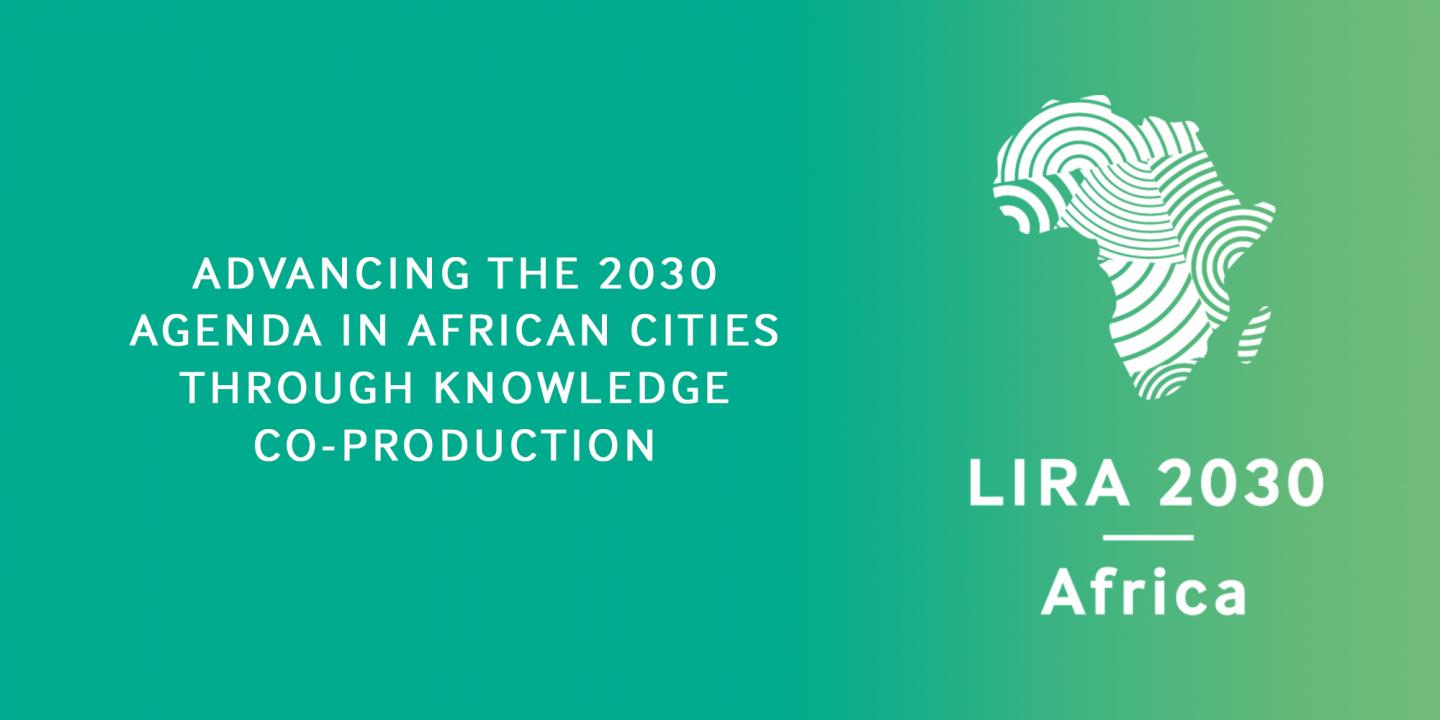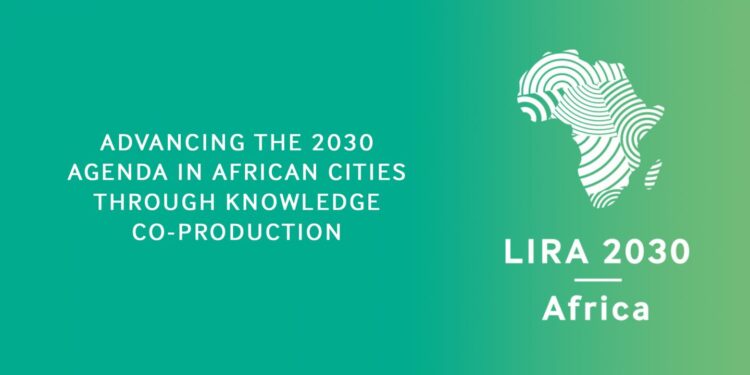Investment in transdisciplinary research and training for future generations of African scientists is crucial to advancing sustainable development in African cities

Credit: International Science Council
The report ‘Advancing the 2030 Agenda in African cities through knowledge co-production’, sheds light on what it takes to co-produce urban knowledge through transdisciplinary (TD) research across different scientific disciplines and with societal actors.
It has been drafted by a team of early-career African scientists funded through the Leading Integrated Research for Agenda 2030 in Africa programme (LIRA2030), which is run by the ISC together with the Network of African Science Academies (NASAC) and with the financial support from the Swedish International Development Cooperation Agency (Sida).
By sharing initial findings from some of the programme’s research projects, the report provides concrete examples of how scientists, communities and policy-makers are working together to implement the UN Sustainable Development Goals in Africa’s cities.
“Africa is urbanizing at an unprecedented level, raising some of the biggest challenges but also offering enormous opportunities for advancing equitable, sustainable development on the continent and globally. Responding with impact to those opportunities will require the effective mobilization of diverse types of knowledge and the integration of such knowledge in decision-making and practice at all levels of governance. The LIRA projects presented in this report demonstrate the value of cross-sectoral dialogue, learning, and action for advancing transformative change in African cities. Investing in a new generation of African scientific leaders to take this work forward is imperative.”
Heide Hackmann, Chief Executive Officer of the International Science Council.
“Capacity building and learning is a lifelong venture. It involves not just learning new things or new ways of doing the same things, but also ‘unlearning’ old ways of doing things. This report reminds us that time has come to put that capacity into practice by unlearning conventional ways of doing science in Africa. Through transdisciplinarity, our early career scientists were able to move research from the lab into new spaces of policy and society. They co-produced knowledge with communities and policymakers to become relevant actors of social change in Africa’s urbanization narrative. Now that’s impact!”
Jackie Kado, Executive Director of NASAC.
Released as the world is facing an unprecedented global pandemic, the report sheds light on the kind of research and action needed to better address complex threats.
“Societal challenges – and today, the COVID19 pandemic – call upon us to bring down the walls that have long separated the different tribes of science, policy and practice, to talk to each other without pride or prejudice and to back up policy decisions with evidence and data, if we are to address the unique speed of unfolding global challenges together. This path-breaking report contains projects that have enabled researchers in and from Africa to transition from focusing on individual excellence in scientific research to believing in bridging different sources of knowledge for deeper engagement with societal challenges, so that we can lead the shift to universities as problem-solvers, and to bring about social change in our cities.”
Kareem Buyana, Makerere University, Uganda, and a co-author of the report.
“The greatest value of the TD approach to my research has been re-centring “service” as the raison d’être of science, be that service to practice or service to our collective societal imagination. By recognizing that diverse sources of expertise are often rendered invisible, the TD approach has challenged conventional wisdom, pushing boundaries to develop innovative new methodologies and partnerships that are inclusive and equitable, and which contribute contextually relevant knowledge. The Covid-19 pandemic has demonstrated the realities of health inequalities and poor resilience in cities across the world. It has highlighted the short-sightedness of failure to consider the implications of the cities we build for the health of people and planet. The responses to this pandemic have also shown the importance of integrating context for the effective implementation of public health control measures. By increasing the pool of researchers trained on TD approaches, it is my hope that science and societal leaders of tomorrow will be better positioned to integrate the diverse knowledge sources and systems into strategies to prevent and address the complex global challenges that lie ahead.”
Tolu Oni, University of Cambridge, UK, and a co-author of the report.
However, the report emphasizes that a number of fundamental shifts in practices of academic and funding institutions are required in order to enable scientists in Africa to respond to the challenges and opportunities of sustainable urban development. Most importantly, it concludes that the building of scientific capacity, especially of the next generation of scholars, to co-produce knowledge on sustainable urban development must be an ongoing, long-term process, with flexible funding mechanisms and appropriate recognition for researchers involved.
The report is available to download open access here: https:/
###
Media Contact
Lizzie Sayer
[email protected]
Original Source
https:/





